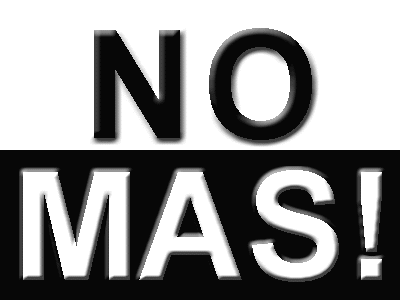The three-year ethics saga between Matthew Swyers, owner of The Trademark Company, and the USPTO’s Office of Enrollment and Discipline (OED), ended with a whisper, with Mr. Swyers agreeing to resign from practicing before the USPTO. By entering into what is called an “exclusion on consent” agreement, Mr. Swyers voluntarily gives up the ability to provide U.S. trademark-related legal services for a minimum of five (5) years. A copy of the exclusion on consent order, which was approved and entered by the USPTO Director’s designee on January 26, 2017, is here.
The Ethics Investigation
Mr. Swyers was an experienced trademark lawyer and former USPTO Trademark Examining Attorney. He established The Trademark Company, PLLC, and through his business, he became a prolific filer of U.S. trademark applications.
He also caught the attention of the OED, which regulates the ethical practice of patent and trademark law. The USPTO began investigating Mr. Swyers for possible ethics violations in approximately 2013. It was then that his ethics saga began. Over the course of several years, he received numerous “requests for information” from the OED, and he claims to have expended hundreds of thousands of dollars responding to hundreds of questions posed by the USPTO’s ethics investigators.
 Federal Court Action
Federal Court Action
In 2016, Mr. Swyers filed a lawsuit in federal court in Virginia seeking to enjoin the OED from investigating him. The complaint alleged that the process employed in conducting the ethics investigation violated his rights under the Fourth and Fifth Amendments. Matthew H. Swyers v. United States Patent and Trademark Office, et al., No. 16-cv-00015-LO-IDD (E.D. Va. Jan. 6, 2016).
Specifically, Mr. Swyers’ federal court complaint challenged the OED’s process for obtaining information that it uses in determining whether a USPTO practitioner may have engaged in unethical conduct. Pursuant to 37 CFR Section 11.22(f), the OED Director is authorized to “request information and evidence regarding possible grounds for discipline of a practitioner” by issuing what it refers to as “Requests for Information” (or “RFIs”). The USPTO’s regulations impose no numerical, temporal, or subject matter restriction on the RFIs themselves.
The complaint alleged that the OED overwhelmed Mr. Swyers by issuing multiple RFIs seeking information on as many as 15,000 trademark applications. The complaint further alleged that “no avenue exists” in the USPTO to challenge OED’s RFIs based on breadth, privilege, vagueness, harassment, or relevance.
The USPTO moved to dismiss Mr. Swyers’ complaint for failure to pursue and exhaust administrative remedies. The USPTO argued that its regulations afforded two levels of internal agency review–specifically, a petition to the OED Director followed by a petition to the USPTO Director–for any practitioner who seeks to challenge the propriety of an OED ethics investigation. See 37 CFR Section 11.2(e). According to the USPTO, Mr. Swyers failed to pursue the agency’s available remedies during the course of the investigation. In addition, the USPTO argued the case was not ripe for judicial review because shortly after Mr. Swyers’ complaint was filed in federal court, the OED ended its ethics investigation and filed an administrative disciplinary complaint against him pursuant to 37 CFR Section 11.34.
On May 27, 2016, the district court granted the OED Director’s motion to dismiss without prejudice. The Court held that dismissal of his federal complaint was appropriate because the matters raised in the complaint were currently being adjudicated by the USPTO and the practitioner may raise his constitutional claims in federal court only after the Agency’s administrative process is concluded. The Court held that the regulatory scheme promulgated by the USPTO for adjudicating ethics charges against patent and trademark practitioners, which includes an administrative adjudication and the availability for review of the ALJ’s decision by the USPTO Director, precludes the exercise of Article III jurisdiction “at this stage” of Mr. Swyers’ case. A copy of the court’s Opinion is here.
USPTO Disciplinary Adjudication
Sometime after Mr. Swyers filed his federal lawsuit and before the dismissal of that lawsuit, the OED Director filed a complaint for discipline. The complaint was assigned to an administrative law judge not affiliated with the USPTO for an evidentiary hearing and to make findings of fact and conclusions of law. The USPTO disciplinary complaint alleged in relevant part that Mr. Swyers:
- systematically permitted non-attorneys to practice trademark law for him with little or no supervision;
- did not personally review or sign thousands of trademark applications and related documents (including statements of use, § 2(f) declarations, and responses to Office actions) prepared by his non-lawyer employees and filed with the USPTO, in violation of USPTO signature and certification rules;
- potentially jeopardized the trademarks of his client because his employees had in multiple cases filed fraudulent or digitally manipulated specimens of use;
- failed to deposit client funds paid in advance into a client trust account and improperly split legal fees with his nonpractitioner employees; and
- failed to respond to lawful requests for information or cooperate with the investigation conducted by the Office of Enrollment and Discipline.
In consenting to exclusion, Mr. Swyers acknowledged that he was the subject of a USPTO disciplinary complaint that, inter alia, alleged he had violated some thirty (30) different USPTO ethics rules.
Although Mr. Swyers denied engaging in any wrongdoing, his exclusion on consent comes with a significant caveat: if he ever seeks reinstatement to practice again before the USPTO (which he cannot do for at least five years), the OED Director will conclusively presume for purposes of considering his reinstatement petition both: (1) the allegations in the disciplinary complaint are true; and (2) Mr. Swyers could not have defeated those allegations.
This case illustrates the dangers of allowing non-practitioners to perform substantial legal functions without proper oversight. In addition, the USPTO’s rules are very clear that only a practitioner may enter the practitioner’s electronic signature on USPTO filings–even if the “signature” is a series of keystrokes in the form of /name of practitioner/, the practitioner herself must be the individual who enters those keystrokes.
This matter also illustrates the enormous power the OED has to wear down a practitioner during an investigation. The practitioner will not be able as a general matter to have a judicial officer review the propriety of the OED’s conduct during an investigation until the administrative process at the USPTO is completed–something that can take several years and cost hundreds of thousands of dollars. Mr. Swyers’ agreement to an exclusion on consent is the equivalent of waving the white flag of surrender.
What Next for The Trademark Company?
As of the date of publication, The Trademark Company is still in operation offering a full range of trademark and copyright services. This appears to be a very successful law practice. In light of Mr. Swyers’ voluntary disbarment from the USPTO, this raises the question as to who or what, exactly, is behind The Trademark Company. The Trademark Company’s website offers no clue in this regard–in fact, it identifies Mr. Swyers as the “principal” owner of The Trademark Company PLLC and states Mr. Swyers’ practice is “limited to the federal protection of trademarks and copyrights.”
The resignation from the USPTO has no impact on Mr. Swyers’ ability to provide copyright related services. Mr. Swyers is (presently) a member in good standing of the Virginia and District of Columbia bars. As such, he is authorized to engage in the full range of legal services that a lawyer admitted in those jurisdictions may perform–with the exception of his inability to provide any legal services related to federal trademark rights, including practice before the USPTO in trademark matters.
In the normal course, Mr. Swyers’ resignation from the USPTO will be reported to his state bars, and they will most likely impose reciprocal discipline. Most jurisdictions treat an “exclusion on consent” as a disbarment. Thus, in all likelihood, Mr. Swyers will soon be facing a reciprocal discipline proceeding in the District of Columbia and Virginia. Assuming he is suspended or disbarred from these other jurisdictions, he will not be able to provide any legal services of any kind.
As for The Trademark Company’s business–that appears to be a very successful internet-based marketing platform. It appears Mr. Swyers has invested considerable resources building The Trademark Company’s business. It would be hard to conceive that Mr. Swyers would just walk away from the business empty-handed, especially considering the time and money he expended in connection with the OED’s ethics investigation and subsequent disciplinary proceeding, as well as the ultimately unsuccessful federal court proceeding.
With some careful planning and the right business partner, a soon-to-be suspended or disbarred USPTO practitioner can take steps to sell their portable assets, such as domain names, web sites, and know how. Clients themselves cannot be “sold.” Working with the right legal partner, however, a practitioner who knows that a disbarment or suspension is likely coming (and they do–notice and due process is required before a law license can be taken away by the government) may contact their clients ahead of time and seek their consent to the transfer of the client’s matter and files to the purchaser, following the procedure set forth in 37 C.F.R. Section 11.117 and the corresponding state ethics rules governing the sale of a law practice. See ABA Model Rule 1.17.

I just posted a complaint on Trust PIlot about this company. They submitted a very simple design logo trademark incorrectly, omitting information, probably in order to get an Office Action – so the USPTO examining attorney calls me to say that she could fix the issues herself. I was angry and called The Trademark company and they responded saying they were not lawyers and could not provide that initial/basic information on the application, but then proceeded to charge me more in order to respond to the Office Action, with the information they said they were not legally allowed to provide? Then on Trust Pilot, they responded to my anonymous complaint with all my private information! A total ethical violation! Scam.